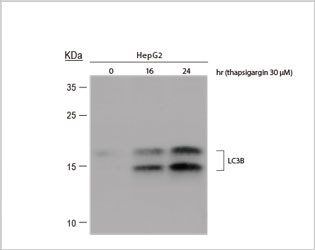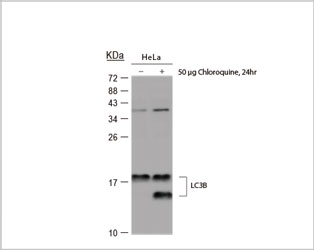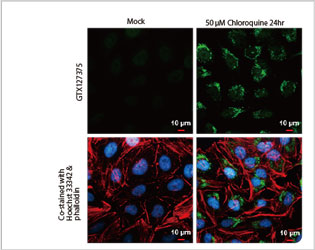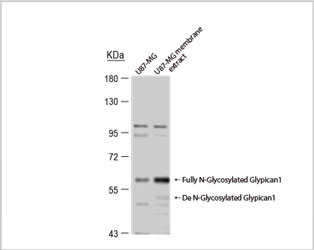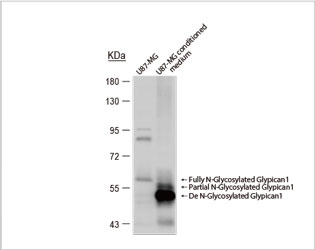|
Detecting predicted changes in the antibody-generated signal due to alteration of experimental biological conditions is a reliable approach to gauge antibody performance. This is based on enrichment, depletion, or subcellular localization of the target protein that results from specific, well-described sample preparation methods commonly used to study protein biology. These methods include the following:
1.Treatment of cells with chemical agents, cytokines, hormones, hypoxic or nutrient-deprived culture conditions, etc.
2.Subcellular fractionation regimens to detect protein localization.
3.Use of various cell lines that demonstrate differential expression of the target protein.
In the example below, LC3B protein expression and subcellular localization were detected by western blot and immunocytochemistry with GeneTex’s LC3B antibody (GTX127375) in HepG2 and HeLa cells treated with Thapsigargin and Chloroquine, respectively. The LC3B signal was found to be both increased and enriched in autophagosomes in the treated cells, corresponding to the protein’s known biological behavior.
|


